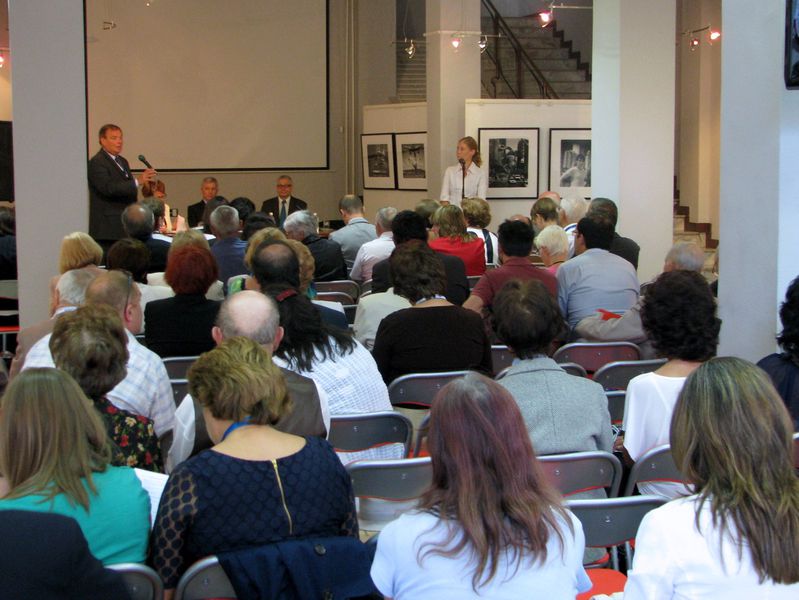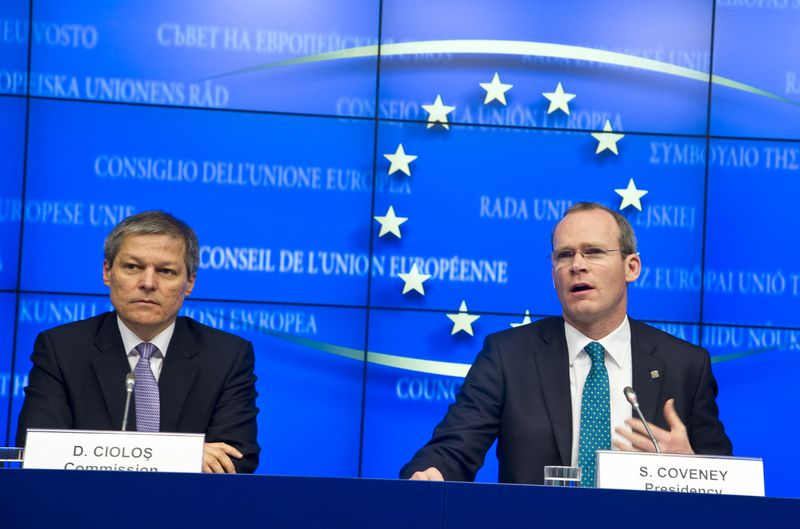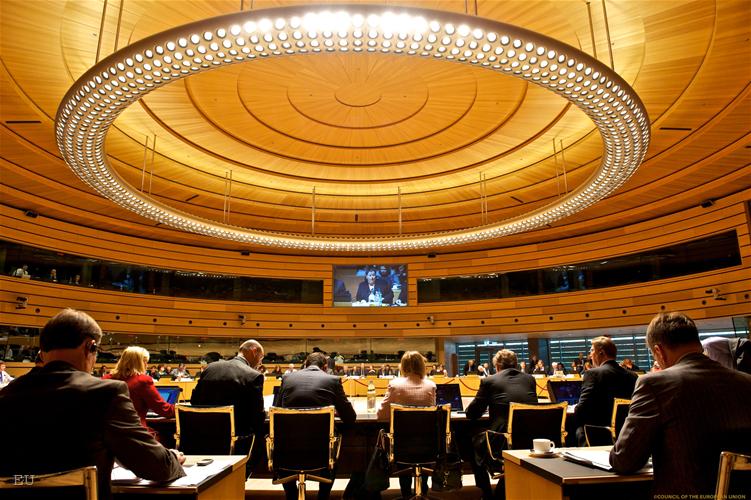Most Europeans Want Farm Subsidies Beneficiaries to Be Made Public
Adelina Marini, October 5, 2011
 The debate on the reform of the Common Agricultural Policy (CAP) of the European Union, maybe the most significant and biggest community policy, is going on precisely for a year now, since agriculture commissioner Dacian Ciolos presented his ideas for a reform. The culmination of the discussions was in the summer when an inter-parliamentary debate took place in the European Parliament with the participation of representatives of national parliaments. Literally days before the Commission is to present a legislative proposal, Eurobarometer published the results from a poll that was conducted in spring in all the 27 EU member states.
The debate on the reform of the Common Agricultural Policy (CAP) of the European Union, maybe the most significant and biggest community policy, is going on precisely for a year now, since agriculture commissioner Dacian Ciolos presented his ideas for a reform. The culmination of the discussions was in the summer when an inter-parliamentary debate took place in the European Parliament with the participation of representatives of national parliaments. Literally days before the Commission is to present a legislative proposal, Eurobarometer published the results from a poll that was conducted in spring in all the 27 EU member states.
26 713 EU citizens took part in the poll, aged 15 and above. The results show, in general, leanings towards the European Commission's ideas which, in its proposal for the next multiannual budget (2014-2020) focused strongly on environment, small farmers and publicising the names of farm subsides beneficiaries, as well as the precise amounts of their subsidies. A broad support is registered for the introduction of an upper limit of the payments for big farms. The data is very interesting on the national level too. In Bulgaria the number of the respondents is 1,000 people, and the methodology is face to face.
In the entire European Union 62% think that the names of beneficiaries and the amounts of their subsidies should be made public. Only one in every fifth respondents (22%) say that this information should remain private. Support for the publication of the names of beneficiaries and the size of their subsides have stated 52% of the Bulgarians. Against are 14% of the respondents in Bulgaria vs. 22% in the EU. The number of the people who said "don't know" in Bulgaria is big - 22% vs. only 8% on a community level.
On this issue the biggest number of supporters of the idea for more transparency of farm subsidies is in Slovakia. There 87% of the respondents said that the names of beneficiaries and the sums they get should be made public. The biggest opponents are the Dutch - 40%. The idea for transparency of the payment of farm subsidies is being raised in the European Union for a long time but still there is no unanimity. The opponents claim that the beneficiaries might easily become victims of blackmail. The experience hitherto, for more transparency, held entirely on a voluntary basis, shows that the largest beneficiaries are big and influential families and firms in the EU, including the royal family in Britain.
This is why one of the latest proposals of the Commission is related to the introduction of a cap on the direct payments for big farms. In Bulgaria 43% approve this. To compare, the common share at the EU level is 47 per cent. 24% in Bulgaria are against and 24% do not know, which is the biggest difference with the EU where only 15 per cent said "I don't know". Of all the member states in the EU the biggest support for capping of the subsidies for bigger farms gave the citizens of Cyprus - 70% against only 16% who said that this was a bad idea. The smallest support is in Malta where 25% said this was a good thing, while 45 per cent claimed this was bad. During the inter-parliamentary discussions in July in the European Parliament, representatives of the Czech National Assembly said that this cap must be very clearly specified because in the Czech Republic most farms were big and might suffer if such a cap was to be introduced.
Another novelty is that, unlike previous attempts, now the Commission is trying to make farmers to work with a thought about the environment. Agriculture, by the way, is one of the biggest producers of greenhouse gases. This is why 30% of the subsidies is proposed to be bound to green measures. In recent debates the opponents are prevailing but, according to the Eurobarometer poll, 44% of the Europeans approve the idea. 36 per cent of the Bulgarian respondents approve the proposal the direct payments to focus on environment protection.
The opponents in the EU in general and in Bulgaria are almost an equal number - 31 per cent in Bulgaria and 33% in the EU as a whole. About unconditional subsidies for farmers are 17% of the Bulgarians and 10 per cent of all the European citizens. Quite expectedly the biggest support for binding the subsidies with actions toward environment protection gave the inhabitants of Denmark where 69% of the respondents approved the proposal, while 22 per cent said they opposed it. This is the country that produces nearly 100 per cent of its energy from renewable sources and recently introduced green restrictions for buses and lorries, passing through some of the cities in the country. The biggest opponents are the citizens of Latvia - 49%, but the proponents should also not to be underestimated - 37 per cent.
In its proposal for the next multiannual financial framework (MFF) the European Commission raised another important issue - the neglect of small farmers -by proposing simplification of their access to direct payments. 44% in the entire EU responded positively. 61% of the citizens of Denmark said that small farms played important role in the social life of specific rural areas, while this opinion is shared by only 27% in Latvia and Malta.
An interesting element of the opinion poll is that it includes the question of buying mountain products. Quite recently, in an interview for euinside, Bulgarian MEP Maria Nedelcheva, a member of the Agriculture Committee in the European Parliament, said that this was one of the Bulgarian proposals for the reform - some kind of labelling, saying "mountain product" to be introduced. 65% of the respondents in the EU agree that there is benefit from buying such products.
It is important to note that there is only a small variation in the answers between the citizens of rural areas and urban regions than it was expected. According to Eurobarometer, rural areas inhabitants are just a little more inclined to focus on the social importance of small farms for the rural communities.
In general the results from the poll indicate a clear support for the proposal for reform of the CAP the way it was proposed by the European Commission. The same opinion is shared by the supporters of the specialised website for CAP reform, who are often the strongest critics of the farm policy. According to Jack Thurston, Eurobarometer's data must be taken with a small dose of doubt because the Commission pays for these polls and has a strong influence on the design of the poll.
Mr Thurston writes that Eurobarometer rarely puts questions that might give awkward answers for the EU. Moreover, the surveys are prone to ask loaded questions that appear almost guaranteed to produce the answers the Commission wants. The author admits, however, that there are very few other surveys on EU affairs nor of the scale of Eurobarometer in terms of sample size. According to him, the variations in the answers among the member states and the answers broken down by socio-demographic divisions can be quite informative for the real attitudes.
From this point of view, it would be extremely interesting to see what the final version Dacian Ciolos will present on October 12 of the reform. Moreover, this proposal will appear just days before the first big clash on the next budget of the Community, on 20-21 October in Brussels, which euinside will follow closely and on the ground.
 | © Polish Embassy in Sofia
| © Polish Embassy in Sofia | © Council of the EU
| © Council of the EU | © EU
| © EU